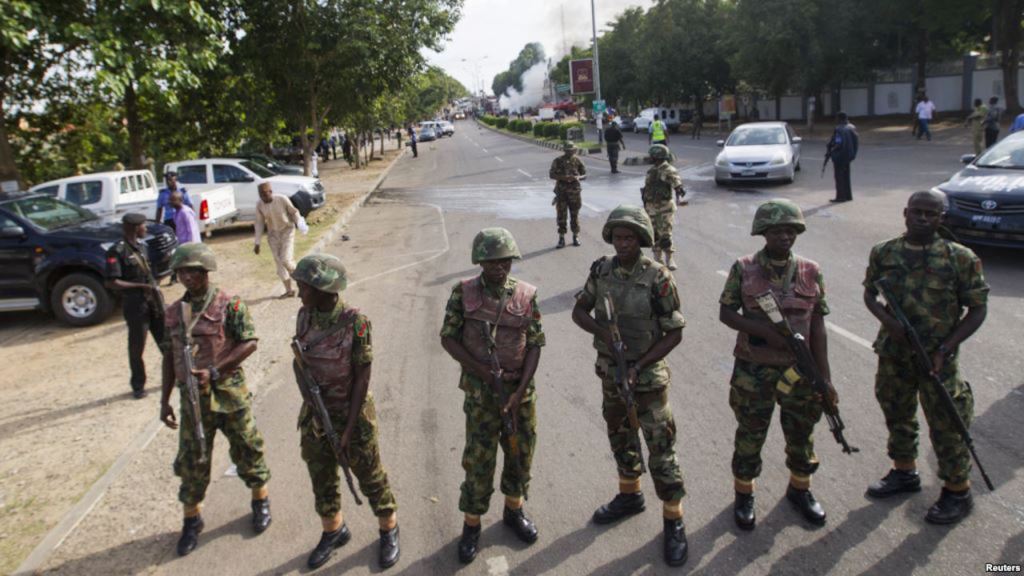
The true wealth of any nation is its people. If there is no security, there cannot be sustainable progress and prosperity. Let us continue to fight for the safety of Nigerians as a matter of utmost priority.
Peace be within your walls and security within your towers! – (Psalm 122:7 ESV)
In 1651, the English political philosopher, Thomas Hobbes came up with an interesting idea that has held for centuries. Humans, according to Hobbes, are naturally selfish; driven by the fear of death and the hope of personal gain. Allowed to exist outside a sovereign political system that defined the rule of law, society, Hobbes argued, would be a place where there is the “continual fear of violent death; and the life of man, solitary, nasty, brutish and short.”
But societies have since evolved. Sovereign states have sprung up across the world, defining and enforcing the rule of law. And of utmost concern is the security of citizens; the protection of lives and property against internal and external aggression. In the last two decades the United Nations General Assembly and the Security Council have reiterated the concept of the responsibility to protect, that is, the primary responsibility of nation states is to protect their own populations from mass atrocities – specifically from genocide, war crimes, ethnic cleansing, and all sorts of crimes against humanity.
The imperative for security is that it forms the basis for every other thing, development inclusive. According to Frances Stewart, Professor of development economics at Oxford, the presence of security contributes immensely to development, with “high levels of security leading to development and development further promoting security.” The absence of security will lead to instability which will lead to capital flight and discourage foreign direct investments.
A May 2016 UNDP report on human development and human security in Nigeria took a survey on citizen’s fears on security and personal safety… The current spate of violent crimes across the country, kidnappings and armed robbery, and particularly the deadly rampage by Fulani herdsmen across the country, particularly in Southern Kaduna does not help matters.
Inasmuch as security impairs a nation’s capacity to maximally develop its resources, it also perpetuates inequality because the poor and vulnerable, who largely live in insecure areas and have less resources to protect themselves, are often the worse hit. So to fail to prioritise security is to run the risk of leaving society at the level of Hobbes’ state of nature. And as Nigeria grapples with its problems of growth and development, we must prioritise security.
A May 2016 UNDP report on human development and human security in Nigeria took a survey on citizen’s fears on security and personal safety. It showed that 76 percent of the respondents were afraid of being subject to theft, being attacked on the street or being sexually assaulted. The report also showed an increase of kidnapping cases in the South-East by 48.5 percent and 25 percent in the South-South zone, and it concluded by saying, “generally, the human security index for the country is low.” The current spate of violent crimes across the country, kidnappings and armed robbery, and particularly the deadly rampage by Fulani herdsmen across the country, particularly in Southern Kaduna does not help matters.
The federal government, haven proven its capacity to deal with these problems in the way it has tackled Boko Haram, can do more in dealing with kidnappings, armed robberies, Fulani herdsmen who kill and destroy property with impunity, and the general sense of insecurity that has, over the years, become regular in the Nigerian experience.
While we acknowledge the efforts of the security agencies, the conditions they are forced to work under can be improved to further boost their morale. We ought to be able to go about our lives and businesses, assured that those who have been given the duty to protect us are able to do their jobs.
More effective policing across the country, better intelligence, swift and impartial dispensation of justice would engender more hope amongst the people. And the seeming idea that people can rob, kidnap and kill and largely get away with it would be reversed. This would furthermore prove that the life of the average Nigerian is worth much than we are making it today. While we acknowledge the efforts of the security agencies, the conditions they are forced to work under can be improved to further boost their morale. We ought to be able to go about our lives and businesses, assured that those who have been given the duty to protect us are able to do their jobs. We also understand the role of citizens in the security dynamic of the country, and implore Nigerians to be vigilant and to cooperate with security agencies in helping forestall crime.
The true wealth of any nation is its people. If there is no security, there cannot be sustainable progress and prosperity. Let us continue to fight for the safety of Nigerians as a matter of utmost priority.
NIGERIA HAS A GREAT FUTURE.
Taiwo Odukoya, a leadership and relationship expert, is the Senior Pastor of The Fountain of Life Church.
PremiumTimes
END

Be the first to comment